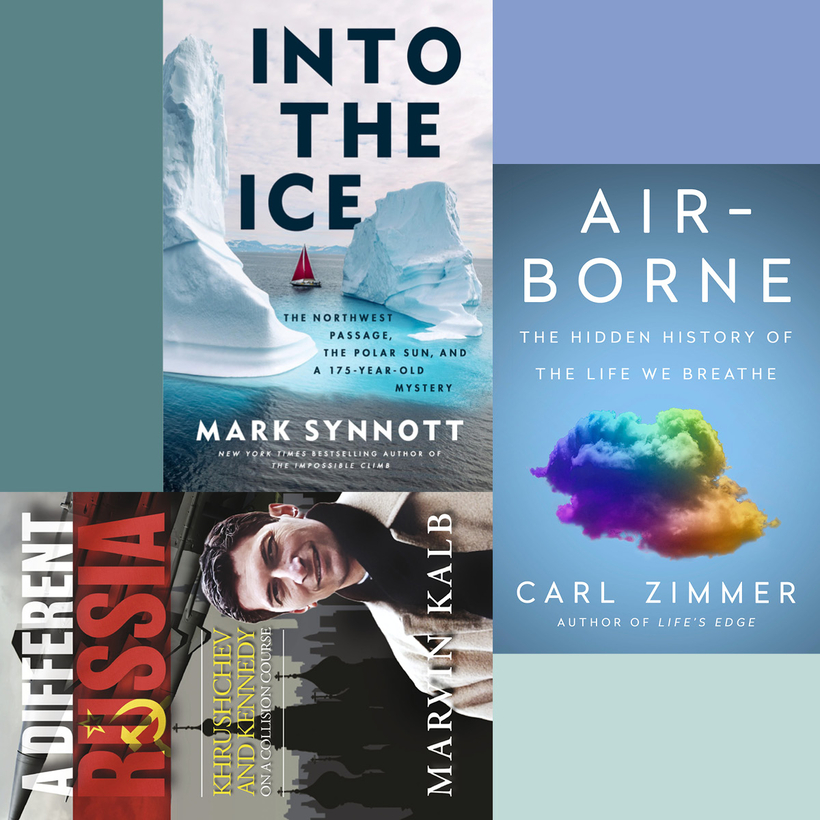What an adventure this book is! There are those who love danger—the more extreme the better—and those whose idea of peril is taking the subway instead of an Uber. Both types will be enthralled by Mark Synnott’s book, an account of sailing the Northwest Passage in a boat of his own, a feat accomplished by only a few hundred. Synnott is a famed mountaineer, so his attraction to the sea came later in life. And it came in the shape of Camelot, a 32-foot ketch with two masts whose own misadventure introduced him to his future wife. He soon traded Camelot for the bigger Polar Sun, which he used to take him on a 7,000-mile voyage from Maine to Alaska via the Arctic Circle. No spoilers about the Northwest Passage here, but the fact that he is alive to write Into the Ice gives you a clue as to how it turned out.
Pause for a second, and now breathe. The air you just took in is the subject of the latest book by Carl Zimmer, one of our best and most engaging science writers. The air carries legions of microbes—some beneficial, some not—and Zimmer succeeds in vividly describing those who have studied the air around us, proving only as recently as the 1930s that germs could indeed be spread in the air and “could float for hours like smoke.” The coronavirus eventually taught us just how lethal that fact could be, but Air-Borne,though inspired by the pandemic, is about so much more than that scientifically humbling event. We change the air around us, and the air changes us, and there is no better examination of what that means for our species than Zimmer’s book.

